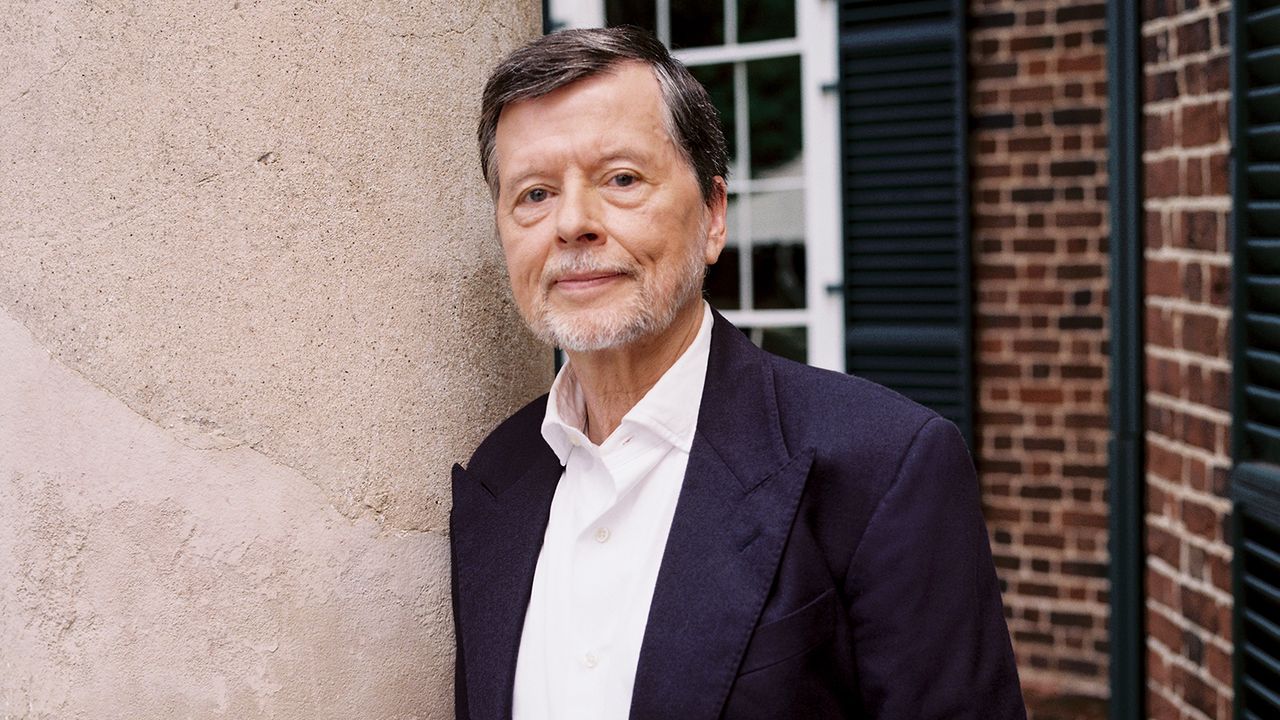Burns has long maintained that his reason for doing what he does is to “wake the dead,” an impulse that began after his mother died when he was 11. (The haircut he had when his mother died was, yes, the one he kept all those decades, even as age—and Tom Brokaw—encouraged him to leave it in the past.) To wake the dead is one answer to the question: Why spend your life this way? But in each film—in particular, the earliest films—we encounter perhaps an even more honest answer that helps us understand both the filmmaker and the man, who, I was told again and again, are indivisible, one and the same.
In The Statue of Liberty, Burns’s third film, we hear Vartan Gregorian, the onetime president of the New York Public Library, affirm: “America is not an actuality but a potentiality. We have to remember that the universe is not going to be seeing somebody like you again in its entire history of creation. So it’s up to you to become a dot, a paragraph, a page…a chapter in the history of creation.”
Okay, so be somebody….
In The Shakers, his second film, we learn that: “The Shakers believed that ideas could take form and that God dwelt in the details of their work and the quality of their craftsmanship.” And make something great….
And at the end of Brooklyn Bridge, playwright Arthur Miller speaks on the appeal of the bridge: “See, the city is fundamentally a practical utilitarian invention, and it always was. And suddenly you see this steel poetry sticking there—it’s a shock…. So, uh, it makes you feel that maybe you too could add something that would last and be beautiful.”
And make it so it endures….
There’s the skeleton key for, foremost, a tireless craftsman, as devoted as a Shaker woodworker, and his life of making. But if there’s just one work that goes to film heaven?
“Yeah, I mean, I think Vietnam and Civil War and now the Revolution,” he said. “There’s nothing more complicated than Vietnam and Revolution in terms of juggling complex narratives.”
I could’ve guessed he might go with the latest. Having reached the end of The American Revolution, he was relishing the “evangelical part,” Burns said, when he doesn’t “have to leave the project yet.” But he would soon accept that it was done, he said. “Which means it’s yours now. And I’m off to the new things.”
Daniel Riley is GQ’s global content development director.
A version of this story originally appeared in the november 2025 issue of GQ with the title “Ken Burns Loves America—and You Can, Too”
PRODUCTION CREDITS:
Photographs by Matthew Leifheit
Styled by Haley Gilbreath
Grooming by Marilisa Battistella
Special thanks to the Thomas Jefferson Foundation
